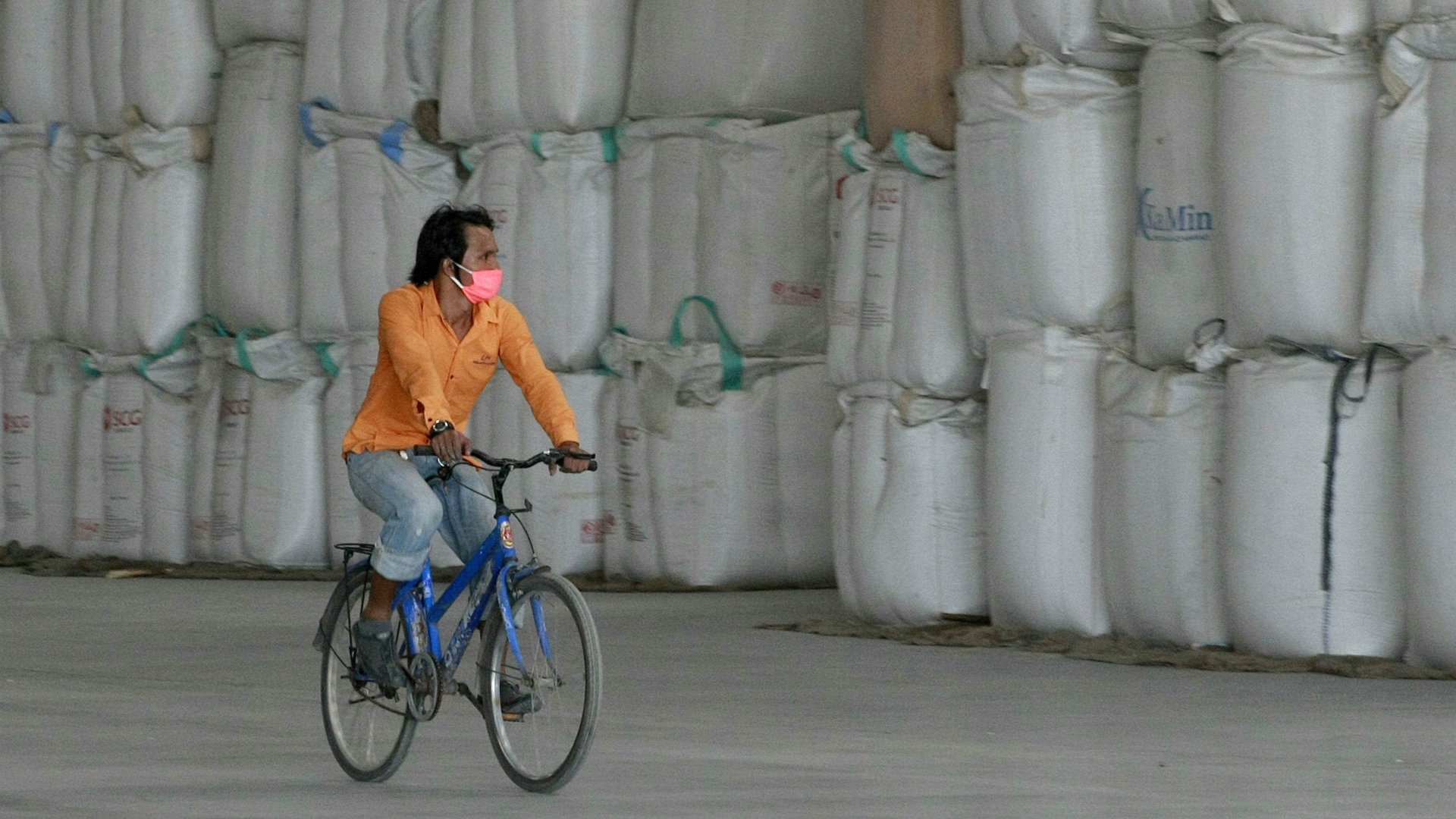Yet another problem with Thailand’s farm subsidy program: Broken rice arbitrage
Thailand’s unconventional policy to subsidize its rice farmers—guaranteeing that the government will buy all Thai-produced rice at a price well above the global market level—has already gutted the business of Thai rice exporters, and generated huge stockpiles of government-owned rice that will either be sold at an enormous loss or rot away.


Thailand’s unconventional policy to subsidize its rice farmers—guaranteeing that the government will buy all Thai-produced rice at a price well above the global market level—has already gutted the business of Thai rice exporters, and generated huge stockpiles of government-owned rice that will either be sold at an enormous loss or rot away.
Now Reuters has found another unforeseen consequence of the rice scheme: sharp-eyed rice merchants are smuggling lower-quality “broken” rice from Cambodia and Myanmar into Thailand, some 750,000 tons per year, and then mixing it with whole-grain rice before selling it to the government. As a result, Thailand’s stockpiles of unsellable rice are expanding further, in what Reuters called a “coals to Newcastle” moment—reflecting the absurdity of illicitly importing rice into what was until recently the world’s biggest rice exporter (it is now #3, behind India and Vietnam).
The coals-to-Newcastle analogy, which dates back to 1538, may prove to be a painful omen for the Thai government. By the late 1990s it was actually cost-effective to import coal into northern England because the price of production had risen above global prices. Thailand recently took steps to lower the premium it pays its farmers for rice, but the scheme has already led to $4.4 billion in losses and endangered the country’s credit rating. If the government persists in fighting the laws of supply and demand, it may find also find itself on the flipside of a former truism—that Thailand is the rice basket to the world.